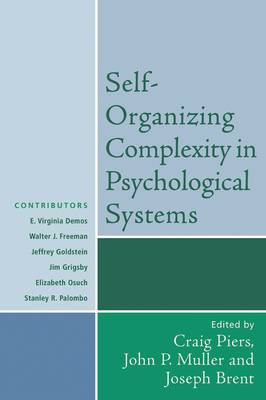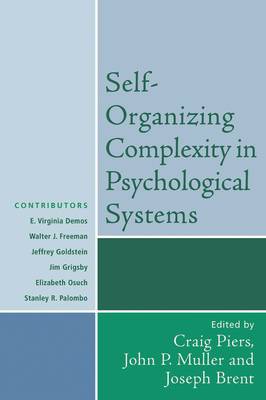
Bedankt voor het vertrouwen het afgelopen jaar! Om jou te bedanken bieden we GRATIS verzending (in België) aan op alles gedurende de hele maand januari.
- Afhalen na 1 uur in een winkel met voorraad
- In januari gratis thuislevering in België
- Ruim aanbod met 7 miljoen producten
Bedankt voor het vertrouwen het afgelopen jaar! Om jou te bedanken bieden we GRATIS verzending (in België) aan op alles gedurende de hele maand januari.
- Afhalen na 1 uur in een winkel met voorraad
- In januari gratis thuislevering in België
- Ruim aanbod met 7 miljoen producten
Zoeken
Self-Organizing Complexity in Psychological Systems
€ 189,45
+ 378 punten
Omschrijving
Self-Organizing Complexity in Psychological Systems offers a contemporary perspective on the mind through a compilation of original chapters written by some of the leading researchers in the area of complexity theory. In each of the chapters, the authors attempt to use complexity theory to inform and in some cases reformulate existing theories of brain function (Freeman; Grigsby & Osuch), personality (Grigsby & Osuch), psychic organization and structure (Goldstein; Piers), human development (Demos), psychopathology (Palombo; Piers) and psychotherapeutic change (Palombo).
Specificaties
Betrokkenen
- Uitgeverij:
Inhoud
- Aantal bladzijden:
- 192
- Taal:
- Engels
- Reeks:
- Reeksnummer:
- nr. 67
Eigenschappen
- Productcode (EAN):
- 9780765705259
- Verschijningsdatum:
- 18/04/2007
- Uitvoering:
- Hardcover
- Formaat:
- Genaaid
- Afmetingen:
- 162 mm x 230 mm
- Gewicht:
- 421 g

Alleen bij Standaard Boekhandel
+ 378 punten op je klantenkaart van Standaard Boekhandel
Beoordelingen
We publiceren alleen reviews die voldoen aan de voorwaarden voor reviews. Bekijk onze voorwaarden voor reviews.








